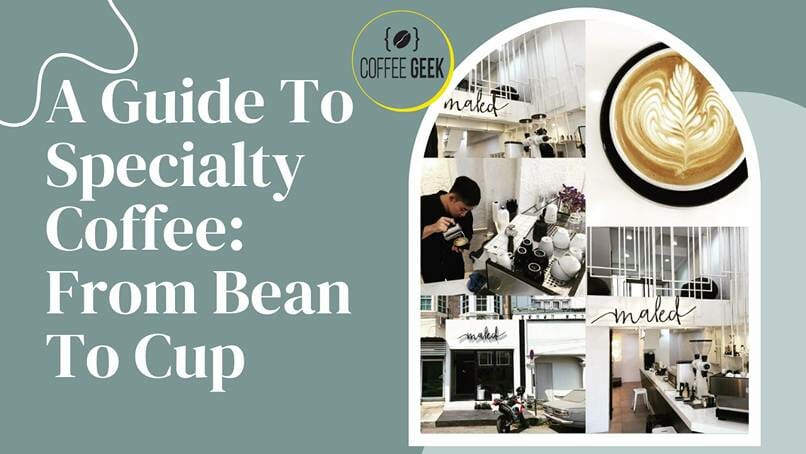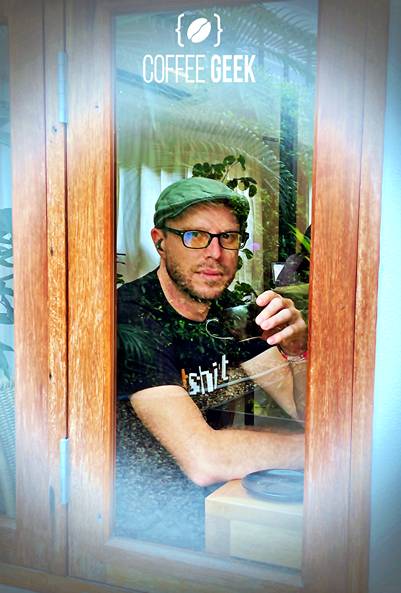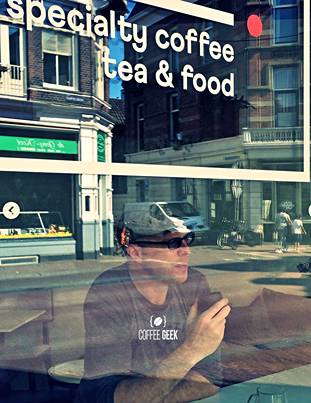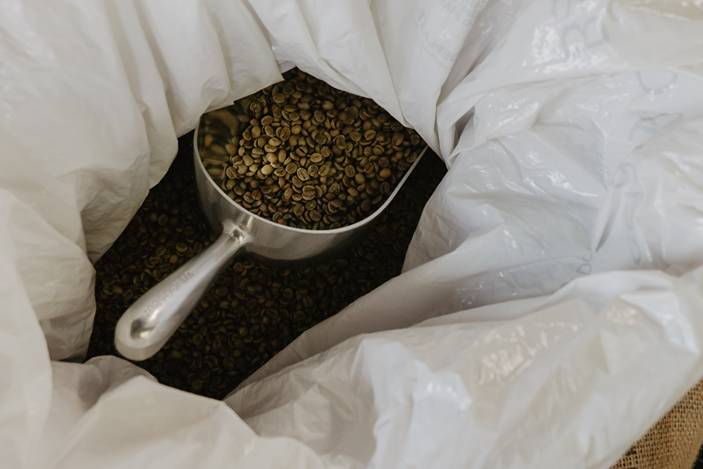Do you ever wonder what goes into the perfect cup of specialty coffee?
From selecting the right beans to mastering different brewing methods, a lot goes into creating amazing coffee.
Whether you’re looking for an introduction to specialty coffee or want to polish your existing knowledge, this guide will help get you started on your journey.
We’ll cover everything from understanding what makes specialty coffee special to exploring the history and future of the craft.
So, fill up your mug, and let’s dive in!
What is Specialty Coffee?
Specialty coffee is more than just a cup of joe. It’s an art form that takes skill, knowledge, and passion for perfecting.
To break it down, specialty coffee is defined as high-quality coffee beans with a score of 80 points or higher out of 100 on the Specialty Coffee Association’s (SCA) grading scale.
The beans used to create this coffee are grown in specific microclimates.
Coffee growers handpick them at their peak ripeness and carefully process them to bring out their unique taste.
Unlike mass-produced coffee, this beverage is light and flavorful with a smooth finish.
Depending on the type of bean used, specialty coffee brings out crafty flavors of fruits, herbs, vegetables, and spices.
Though the beverage has been around for centuries, it’s only become popular recently.
Coffee growers, baristas, and roasters have pushed the specialty coffee industry forward by creating unique blends and tastes that have left the world wanting more.
How Coffee Is Graded and Scored
The SCAA has developed a sophisticated specialty coffee grading system to ensure the highest quality beans and a satisfying experience for every cup.
Their Cupping Protocol evaluates all bean components, including aroma, flavor balance, body, and more – yielding scores between 0-100 that determine whether your brew is truly specialty grade.
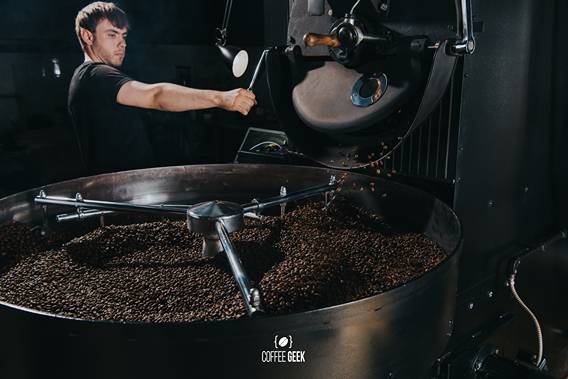
Coffees with an impressive score above 80 can be deemed as passing this prestigious bar, while anything below falls short of meeting these high standards.
The table below shows the different grades of specialty coffee and their corresponding scores:
| Grade | Score Range | Specialty? |
|---|---|---|
| Excellent | 90-100 | Yes |
| Very good | 85-89 | Yes |
| Good | 80-84 | Yes |
| Below average | 79 and below | No |
Table:
A Brief History of Specialty Coffee
Though coffee has been around for many years, specialty coffee as we know it today didn’t exist until the mid-1970s.
This was when the concept of coffee as a craft beverage was born.
In 1974, the visionary coffee importer Erna Knutsen made waves in the industry by introducing a totally new concept – “specialty coffee.”
As she described in a Tea and Coffee Trade Journal article, these beans were unique to other varieties because they had distinct flavor profiles.
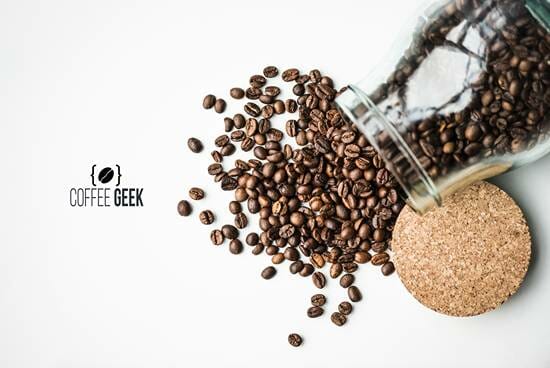
During this time, coffee drinkers began to appreciate the exceptional flavors of coffee from different locations.
An entire industry was born out of this appreciation, with importers and roasters starting to highlight coffees with distinct flavors.
This led to the growth of the “third wave” coffee movement in the 2000s.
This coffee movement focuses on coffee as an artisanal food, emphasizing the importance of quality coffee beans and sustainable practices.
From coffee farming to coffee consumption, this movement brought coffee production full circle by emphasizing respect and appreciation for coffee farmers, roasters, and baristas.
The Art of Brewing Specialty Coffee
Brewing specialty coffee requires the same skills and knowledge as any other craft. The process starts with selecting the right beans.
Here are some tips on selecting specialty coffee:
- Look for certified specialty coffee beans: Look for beans that have been certified by the Specialty Coffee Association of America (SCAA) or the Specialty Coffee Association of Europe (SCAE). This certification ensures that the beans are high quality and have passed strict quality control standards.
- Choose the right roast: Different roasts will result in different flavor profiles. Dark roasts will have a bold and smoky flavor, while light roasts will have a bright and fruity flavor.
- Choose a coffee bean based on origin: Coffee beans grown in different regions will have distinct flavor profiles. For example, coffee beans from South America typically have a nutty and chocolate flavor, while those from Africa have a fruity and floral flavor.
- Consider the processing method: Different processing methods will result in different flavors. Wet processing will produce a cleaner and sweeter flavor, while dry processing will produce a bold and earthy flavor.
- Taste before you buy: Whenever possible, taste the coffee before you buy it. This will give you a good idea of what to expect in terms of flavor and quality.
- Look for freshly roasted beans: Freshly roasted coffee beans will have a better flavor and aroma than coffee sitting on a shelf for weeks. Make sure to buy coffee roasted within the last two weeks.
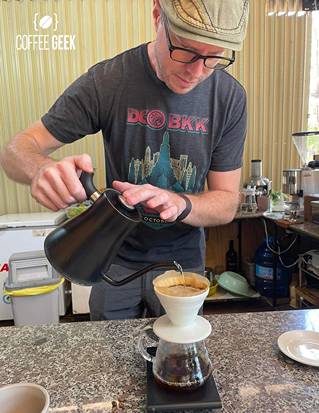
Once you have your beans, it’s time to brew. Brewing specialty coffee requires skill and precision to extract the best flavors from your beans.
Here are some tips on brewing specialty coffee:
- Grind the beans freshly: Grinding the beans immediately before brewing will ensure you get the most flavor out of your beans.
- Use the right amount of coffee: Depending on the brew, you’ll want to use a different amount. Generally, you’ll want to use 2-3 tablespoons of ground coffee per 8 ounces of water.
- Use the right water temperature: Generally, the best temperature for brewing specialty coffee is between 195-205 degrees Fahrenheit (90-96 degrees Celsius). This will help bring out the flavor and aroma of your coffee.
- Choose quality equipment: Invest in SCAA-certified coffee makers and grinders to get the best results. French press and pour-over brewing are also popular choices for making specialty coffee. You’ll get a full-bodied cup with a bold flavor with the French press. And With pour-over brewing, you’ll get a more complex and nuanced flavor profile.
- Choose the right filter: Different filters will produce different results. A paper filter will help you get a clear cup of coffee, while a metal filter will allow more natural oils and flavors to pass through.
Finally, don’t forget to experiment and have fun! Brewing specialty coffee is an art, and there isn’t a single right way to do it.
As you gain experience, you’ll find what works best for your taste.
The Rise of Specialty Coffee Shops
In recent years, specialty coffee shops have been popping up everywhere.
From trendy brunch spots to artisanal cafés featuring locally-roasted beans from around the world, these specialty coffee houses are changing how people think about their morning cup of Joe.
Some of the most popular ships offer a wide range of options, from espresso and cappuccino to pour-over and nitro cold brews, all made with precision and care.
These shops provide an experience beyond simply grabbing a cup of Joe on the go.
Their unique atmospheres and dedication to quality ingredients give customers something more than just caffeine—a sense of community and culture.
From cozy study nooks to conversation pieces like art installations, these spaces often become places for people to connect and hang out while indulging in delicious cups of their favorite drinks.
Not only are these cafes offering amazing experiences and delicious drinks, but they’re also helping small businesses thrive by sourcing locally-roasted beans for their brews.
Supporting local farmers, baristas, roasters, and other businesses along the supply chain makes it easy to see how specialty coffee can positively impact the community.
What to Look For in a Specialty Coffee Shop
If you’re on the hunt for a coffee shop that serves specialty coffee, there are key elements to look for. Here are the top 9 qualities to look for in a specialty coffee shop:
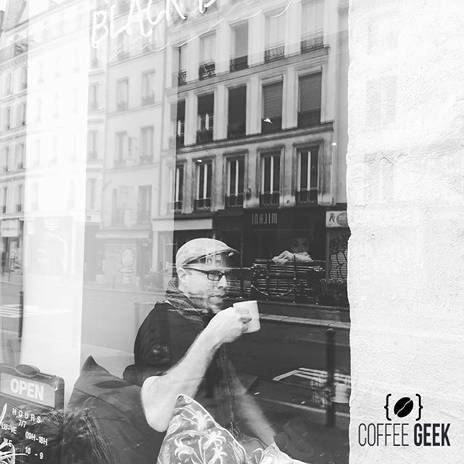
- Coffee quality: Good coffee shops use high-quality specialty coffees. They should source their beans from trusted coffee farms and roasters.
- Comfortable atmosphere: A coffee shop should be where you feel comfortable spending time. Look for cafes with inviting environments, good lighting, and cozy seating arrangements.
- Knowledgeable baristas: Good baristas are the backbone of any specialty coffee shop. They should know their stuff when it comes to specialty coffee and be able to explain the origin and flavor profiles of their coffees.
- Fair trade: If a cafe offers fair trade coffee, that’s a good sign. This means they care about ethical sourcing standards and are committed to fair labor practices and sustainability.
- Stylish presentation: A great specialty coffee shop should be stylishly designed and decorated, from coffee tumblers to espresso machines. You should be able to tell that cafe owners have invested in the look and feel of their coffee shop.
- Variety of drinks: A coffee shop should offer a variety of coffee drinks, from seasonal specials to coffee-based cocktails and mocktails. A variety of coffee-based and tea-based beverages will keep customers coming back.
- Specialty brewing methods: Cafes should have coffee brewing equipment that can handle different coffee styles and brewing methods. Look for shops with cold brew towers, espresso machines, French presses, pour-overs, and more.
- Cleanliness and good hygiene practices: Cleanliness is important! A coffee shop should be presentable, with a spotless coffee bar and well-maintained coffee machines. Check to see if the coffee shop follows good hygiene practices, such as using face masks and gloves for baristas.
- Signature drinks: Specialty coffee shops should offer unique drinks you can’t find anywhere else. Look for cafes with signature coffee recipes or coffee-based cocktails that set them apart from others.
The Future of Specialty Coffee and ‘Third Wave’ Coffee
Specialty coffee is in the midst of an incredible growth spurt, and it’s leading to some fascinating developments.
From exciting new brewing methods that tantalize taste buds to sustainability-focused practices for environmental well-being, specialty coffee has plenty of potential beyond its already bustling industry.
We even see small-batch roasters taking off as dedicated enthusiasts take advantage of specific regions or estates offering their best beans!
The ‘third wave’ of coffee has been coined to describe these exciting new developments, and it’s a movement that many specialty coffee lovers have embraced.
Third-wave coffee is about elevating the craft of making coffee from an everyday experience to a truly special one.
It’s about exploring new methods, discovering unique flavors, and using coffee to connect people worldwide.
Whether through direct trade, sustainable sourcing practices, or educational workshops, the third wave of coffee is focused on pushing the boundaries of what specialty coffee can do.
For an interesting read, check out how specialty coffee is booming in China here.
In Conclusion
If you’re a coffee enthusiast, get ready to explore the next frontier of flavor! Specialty-grade beans and brewing techniques take your cup of joe up a notch.
So, give specialty coffee a try today and savor all that out-of-this-world taste!
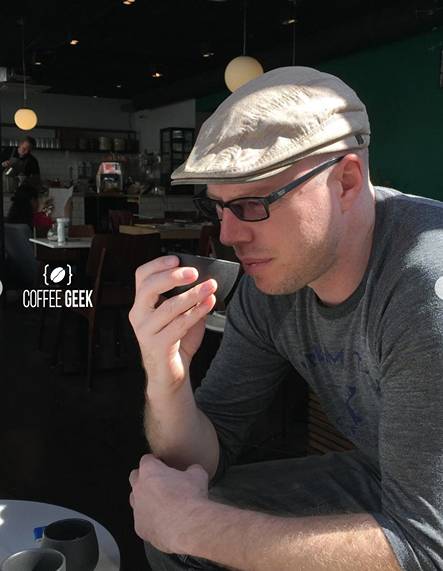
Want to go to the biggest coffee event of the year. Check when the Specialty Coffee Expo annually here.
FAQs
What Is the Difference Between Speciality Coffee and Normal Coffee?
Specialty coffee is defined by quality, and it’s all about flavor. To be considered specialty coffee, beans must score 80 or higher on the Specialty Coffee Association’s 100-point scale.
This means that the coffee must exhibit specific and unique characteristics, like a floral aroma or citrus flavor notes. The beans must also be grown in certain regions and processed using specific techniques.
In comparison, regular coffee does not necessarily follow these standards and often has a lower quality cup.
Why Do People Drink Specialty Coffee?
People drink specialty coffee for its unique flavors and aromas from carefully-sourced beans. Some people also prefer to support small-scale farmers in developing countries who produce specialty coffee beans. For many, it’s also a way to connect with and appreciate the hard work of creating a cup of coffee.
What Are Specialty Coffee Beans?
Specialty coffee beans are those that have been grown and processed using specific methods, resulting in higher-quality beans. The beans must meet certain standards before being called “specialty” grade. These standards include things like the bean being free of defects (no defects), having a unique flavor due to the soil and climate in which it was grown, and focus on being processed with care.
What are Specialty Coffee Shops?
A specialty coffee shop is a cafe or espresso bar focusing on crafting and serving high-quality coffees. The baristas in these shops know about coffee and have experience brewing and extracting espresso shots.
The shops often source their beans from specific regions or countries, use quality grinders and SCAA-certified coffee makers to ensure consistent extraction, and offer signature drinks that incorporate creative ingredients.
The atmosphere in specialty coffee shops is usually inviting, focusing on conversation and community. These shops are often clean, with good hygiene practices in place. They may also serve food and drinks, presented on beautiful cups or plates, to enhance the experience of enjoying a cup of specialty coffee.
How Do I Identify My Specialty Coffee?
To identify specialty coffee, you’ll need to look for certain telltale signs. Look for labels that state the bean’s origin and processing method. If you visit a specialty coffee shop, ask your barista about the coffee – they should be able to tell you where it was sourced and how it was processed.
You can also look for coffee beans certified by the Specialty Coffee Association, as these have undergone rigorous taste testing and quality assurance. You can also look for SCA accreditation on the cafe’s website or menu.
What Is the Opposite of Specialty Coffee?
The opposite of specialty coffee is mass-produced, commercial coffee. This type of coffee is usually made with lower-quality beans and doesn’t necessarily meet specific standards. It is usually made with cheaper, more abundant beans and is often sold in large cans or bags.

